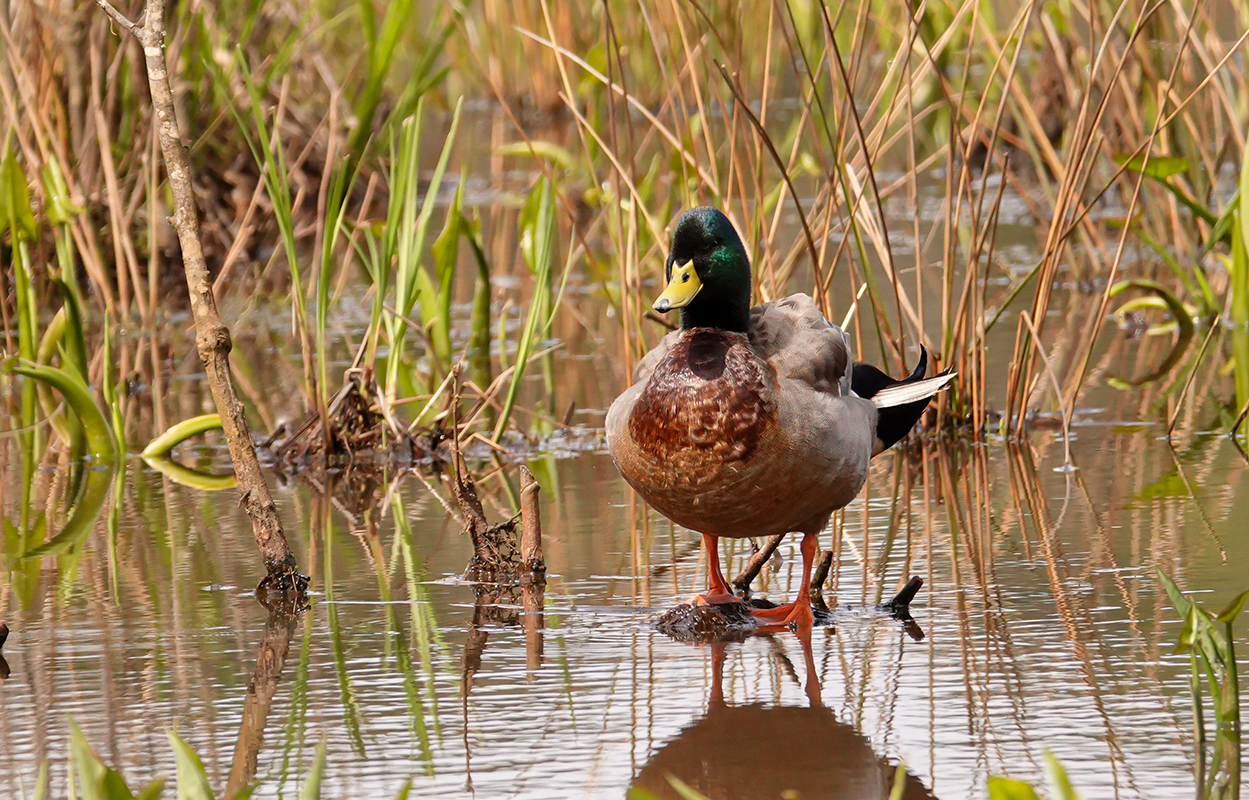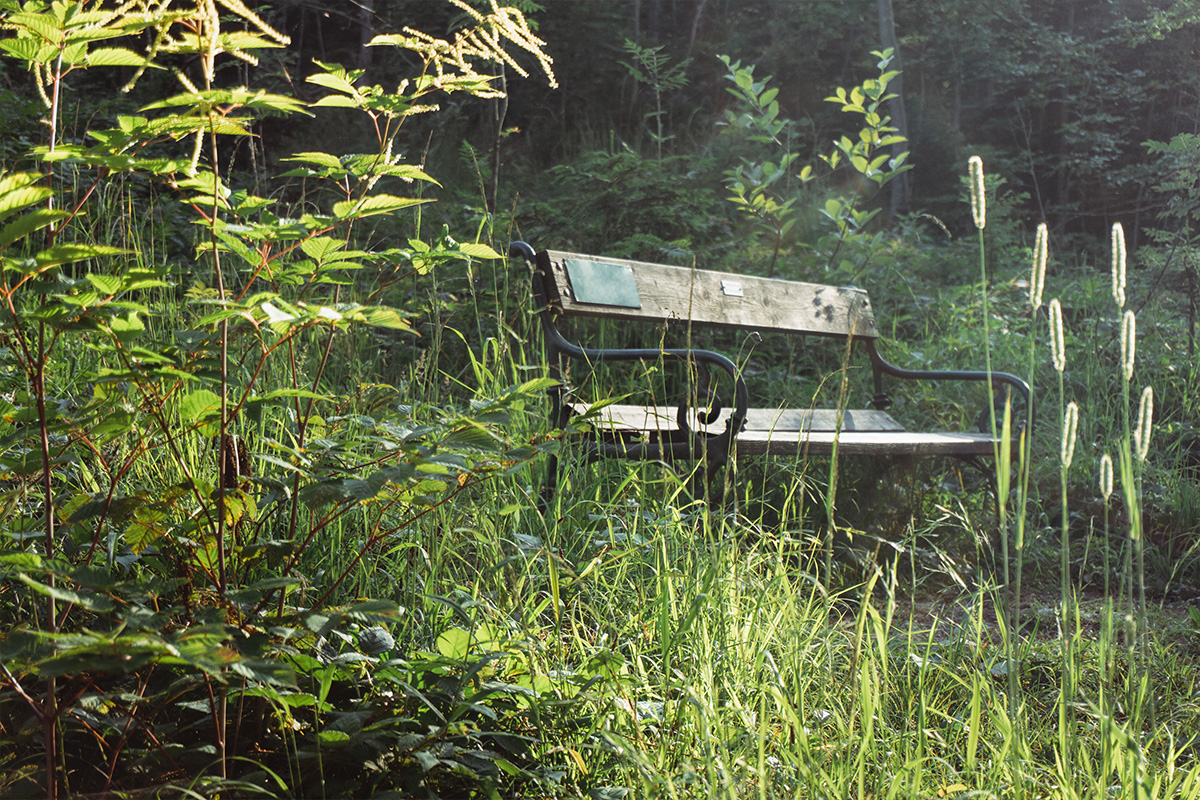A deeper connection: how learning about nature amplifies its wellbeing benefits
Lara Jones, Nene Valley Engagement Officer at The Wildlife Trust (Bedfordshire, Cambridgeshire & Northamptonshire), writes about how actively learning about nature can deepen our connection to it and improve our wellbeing.
Published July 29, 2025
We’ve all felt it: that sense of calm when walking through a forest, the renewed, fresh energy after spending time by the ocean, or the simple joy of watching birds go about their day in our back garden. Nature has an undeniable power to restore our minds and bodies, but what if we could unlock even more of these benefits? Research suggests that actively learning about the natural world doesn’t just make us more knowledgeable, it actually enhances nature’s positive effects on our wellbeing.
Nature’s beneficial impact on our mental and physical health isn’t just folklore; studies have shown that spending time in natural environments can reduce cortisol levels, lower blood pressure, and decrease symptoms of anxiety and depression. The Japanese practice of shinrin-yoku, or “forest bathing” has been shown to boost immune function and reduce stress hormones.
But these benefits aren’t just about being physically present in nature. Our brains are wired to respond to natural environments in profound ways. The Attention Restoration Theory (Kaplan, 1989) suggests that nature provides a mental break from the directed attention required in our daily lives, allowing our cognitive resources to replenish.
In his book, ‘The Nightingale’, Sam Lee speaks to the way that this restorative connection was inherited from our ancestors, who will have lived surrounded by nature far more abundant than we could possibly know today, and whose relationship was so much deeper, they could speak the language of the birds:
”Studies proving the correlative benefits of birdsong and mental wellbeing today feel almost self-evident.... But consider this etching of song in the tribal sense on the minds of each generation of early humans growing up bilingual in both our own tongue and the bird languages. Our ancestors were well versed in the inherited wisdom of birdsong and its meaning, not just on a practical level of identification, but through the lens of each individual species' mythology, totemic stature and associated knowledge.
Like plants and their medicinal properties- the willow's pain-relieving aspirin, the foxgloves' heart- stimulating digitalis or the deadly nightshade's pupil-dilating atropine- the song of the nightingale is a sonic equivalent of a deep-tissue massage, a balm for those needing to re-root themselves back in an older way.”
Sam LeeThe Nightingale

Actively learning about nature multiples the benefits
When we deepen our understanding of the natural world around us, something even more remarkable happens- our connection to nature becomes more meaningful and the wellbeing benefits become more pronounced. Here’s why:
Enhanced mindfulness and presence
Learning about nature naturally cultivates mindfulness. When you know that the bird you’re hearing is a robin defending its territory, or that the tree you’re sitting under is a 200-year-old oak supporting a community of wildlife, you become more present in the moment. This deeper awareness transforms a simple walk into a rich, engaging experience that more fully captures your attention and provides greater stress relief.
Increased sense of wonder and awe
Knowledge doesn’t diminish wonder; it amplifies it. Understanding the intricate relationships in an ecosystem, the migration patterns of butterflies, or the ancient wisdom embedded in traditional plant uses can fill us with awe. This sense of wonder has been linked to improved mood, increased life satisfaction, and a greater sense of connection to something larger than ourselves.
Stronger environmental connection
When we learn about nature, we develop what psychologists call “nature relatedness” – a deeper sense of connection to the natural world. This connection has been consistently linked to higher levels of happiness, life satisfaction, and psychological wellbeing. It’s not just about being in nature; it’s about feeling part of it.

A few tips to get you started….
Start local and accessible
Begin with what’s immediately around you: download an identification app, like ‘Seek’, or ‘ObsIdentify’ for plants, or ‘Merlin’ for birds, and learn about the wildlife around you in real time. Keeping a nature journal noting seasonal changes in your local park, or simply observe and draw or paint something that catches your eye can be a great way to mindfully observe nature.
Connect with others
Join local nature groups, participate in citizen science projects, or take guided nature walks, you can find a range of wellbeing walks on the Activities page of the Active Quarter website. Learning alongside others creates community and shared experiences that enhance the social benefits of nature exposure. The Wildlife Trust BCN offers a host of events and Wildlife Training Workshops to help develop your knowledge.
Create seasonal learning goals
‘Nature’ is such an expansive subject, which is exciting, because there is so much to learn, but it can be overwhelming, and it can be easy to feel like you have to learn everything very quickly. Learning to identify 10 local birds in spring, or tracking animal signs in winter can help to break up and diversify your learning. This can help you to spot patterns in nature and understand landscapes in more detail.
As you deepen your nature knowledge, you’ll likely find that the benefits extend far beyond personal wellbeing. You may become more environmentally conscious, make choices that support local ecosystems, and inspire others to develop their own connection to nature. You might find yourself slowing down, becoming more observant, and developing a greater appreciation for the present moment. For me, learning about nature has been the greatest gift, it’s opened the world around me into a very exciting place, where I know there is something fascinating to be learned about every piece of moss, every insect, every living thing.
So why wait?
The beauty of nature learning is that it can begin immediately, regardless of where you are or what resources you have access to. Step outside, pick one natural element that catches your attention, and spend a few minutes really observing it. What do you notice? What questions arise? Let your curiosity be your guide, and know that this ‘soft fascination’ is restorative.
Remember, the goal isn’t to become a nature expert overnight- it’s to cultivate a lifelong practice of noticing, learning and connection that enriches both you. Every moment of attention you give to nature is an investment in your mental and physical health, and the more you utilise this, the greater your returns will be.
The natural world is waiting to share its many secrets with you, and in learning them, you’ll discover not just interesting facts about nature, but profound truths about yourself and your place in the living world around you.